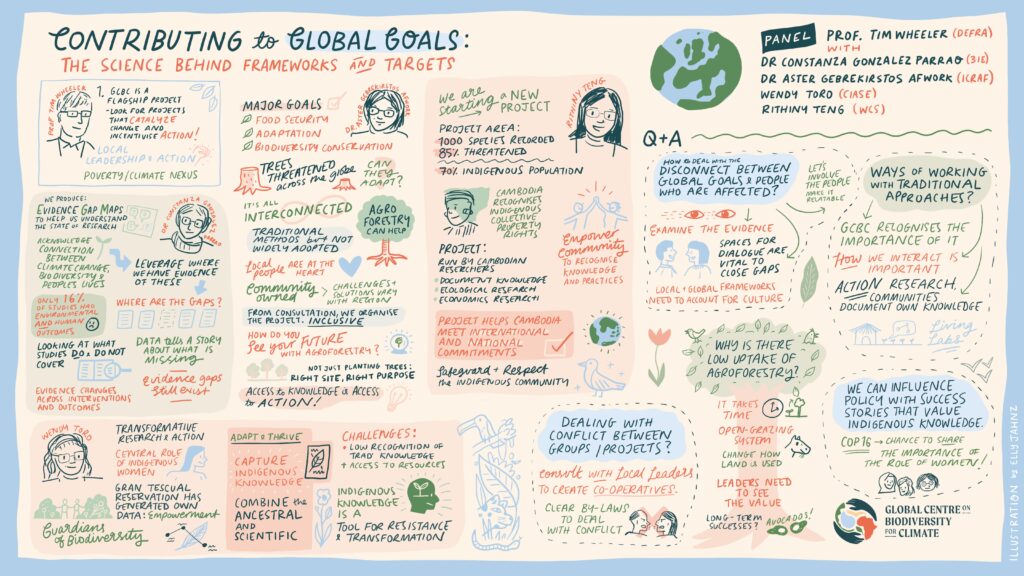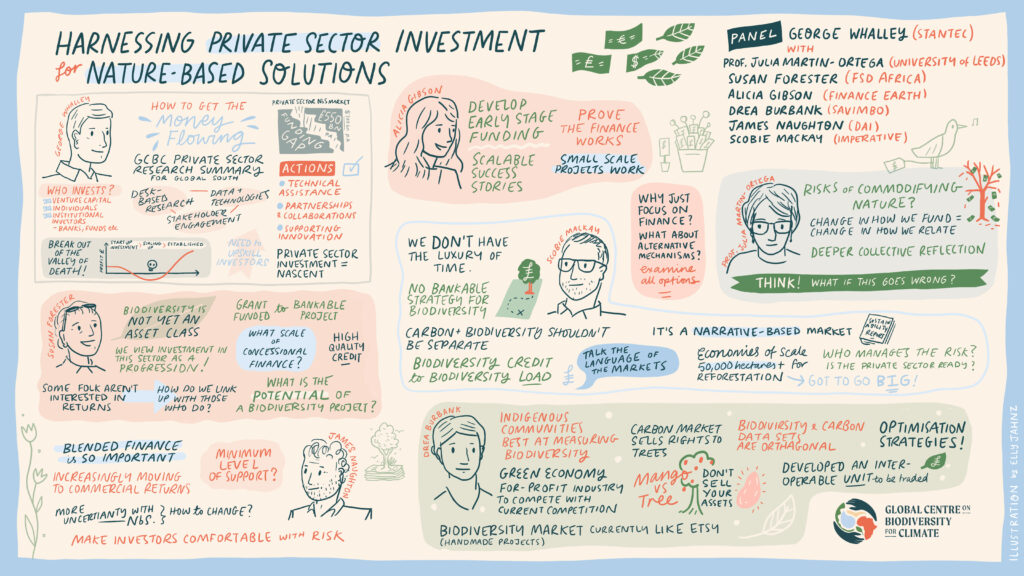The GCBC 2025 Research Symposium Open Day
Each year, the Global Centre on Biodiversity for Climate hosts a research symposium focused on sharing big ideas, transformative practice and stories of impact.
This year, we invited the entire GCBC community to participate in the event through an online Open Day on Tuesday 4 March 2025.
The Open Day programme included four engaging sessions with speakers from around the world. You can access the session recordings below.
Additionally, the key takeaways from each panel session have been beautifully brought to life through the illustrations of Elly Jahnz.
Opening Session: Why supporting innovative research at the intersection of climate change, biodiversity loss, and poverty alleviation matters.
Panel Discussion 1: Contributing to global goals – Exploring the science behind national and global frameworks and targets.

Panel Discussion 2: Strengthening the connection between evidence and policy with a focus on practice from across the GCBC community.

Panel Discussion 3: Harnessing private sector investment in Nature-based Solutions.

For more information, read our blog on the Symposium, written by Samantha Morris, to explore the key outcomes from the full three-day event.
Thank you so much to all members of our GCBC research community who joined us in person and online for the symposium, and to our wonderful speakers, panelists, and chairs for your insight, expertise, and for generously giving your time to be with us.





